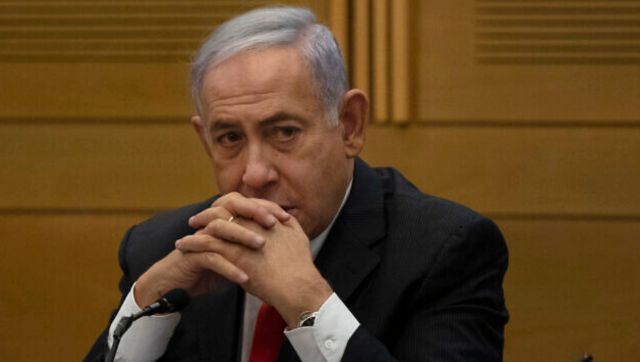In the turbulent landscape of the Israel-Hamas conflict, one leader stands firm while another concedes. Israeli Prime Minister Benjamin Netanyahu, overseeing more than 100 days of intense warfare, refuses to back down. As the world watches, Netanyahu’s uncompromising approach raises questions about the future of the region and the possibility of peace.
War on multiple fronts Netanyahu faces a myriad of opponents in the Israel-Hamas war, including Hamas in Gaza, Hezbollah in Lebanon, Houthi rebels in Yemen and Iran-backed militias in Syria. Responding to these challenges, Netanyahu has consistently chosen a path of brute force, vowing not to grant immunity to any terrorist. “We are continuing the war on all fronts and in all sectors. We are not giving immunity to any terrorist: Not in Gaza, not in Lebanon, not in Syria and not anywhere. Whoever tries to harm us, we will harm him,” said Prime Minister Netanyahu. Changing goalposts Originally driven by the goal of eliminating Hamas for the safety and security of Israel, Netanyahu’s objectives appear to be evolving. While the war has taken a toll on Gaza with over 25,000 deaths, Netanyahu’s focus has shifted to broader territorial control. He now asserts that Israel must have security control over the entire territory west of the Jordan River, including both Gaza and the West Bank. “Therefore, I clarify that in any arrangement in the foreseeable future, with an accord or without an accord, the State of Israel must have security control over the entire territory west of the Jordan River. That’s a necessary condition. It clashes with the principle of sovereignty, what can you do,” the Israeli prime minister said. Rejection of two-state solution Netanyahu’s recent declaration has stirred controversy, as he insists on security control over Palestinian territories, conflicting with the principle of sovereignty. This rejection of a two-state solution has garnered criticism from both allies and adversaries. Most of Israel’s allies, including Western nations, have traditionally supported a two-state solution, and Netanyahu’s shift is not well-received. Muslim nations, including Jordan and Turkey, condemn Netanyahu for defying the international community. Saudi Arabia explicitly refuses to normalize ties with Israel without the establishment of a free Palestine. The reactions highlight the global repercussions of Netanyahu’s stance on the Palestinian issue. Allies turn against Netanyahu Even Western allies are turning on Netanyahu. “I think it’s very disappointing that Benjamin Netanyahu has said that. It’s not in some senses a surprise - he’s spent his entire political career against a two-state solution. But the point is, which other route is there to seriously resolve this?” said Britain’s Defence Minister Grant Shapps. EU Foreign Policy Chief Josep Borrell calls for a shift from talking about peace to concrete discussions on the two-state solution. “I think that we have to stop talking about the peace, the peace process, and start talking more concretely about the two-state solution process,” said Borrell. However, US President Joe Biden appears to be in denial, insisting that a two-state solution is still possible under Netanyahu’s leadership. “I think we will be able to work something out. There are a number of types of two-state solutions. There’s a number of countries that are members of the UN that are still, don’t have their own militaries. A number of states that have limitations on them. And so, I think there’s ways in which this could work,” said President Biden. Domestic unrest Netanyahu’s stance has ignited domestic unrest with citizens protesting outside the prime minister’s house. Families of hostages taken by Hamas demand action, planning to camp until their loved ones are freed. Calls for early elections and dissatisfaction among the Israeli population put further pressure on Netanyahu. As Benjamin Netanyahu navigates through a complex web of domestic and international challenges, the question arises: will he succumb to the mounting pressure or persist in his controversial path? The world watches closely, awaiting the outcome that could shape the future of the Israel-Hamas conflict and the broader Middle East. Views expressed in the above piece are personal and solely that of the author. They do not necessarily reflect Firstpost’s views. Read all the Latest News , Trending News , Cricket News , Bollywood News , India News and Entertainment News here. Follow us on Facebook , Twitter and Instagram .
)